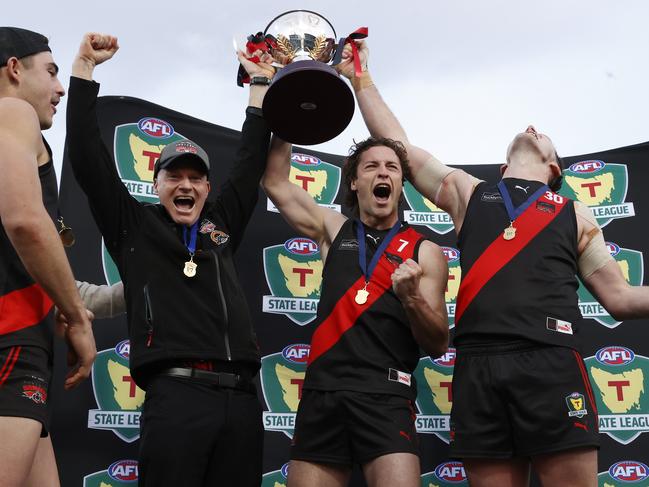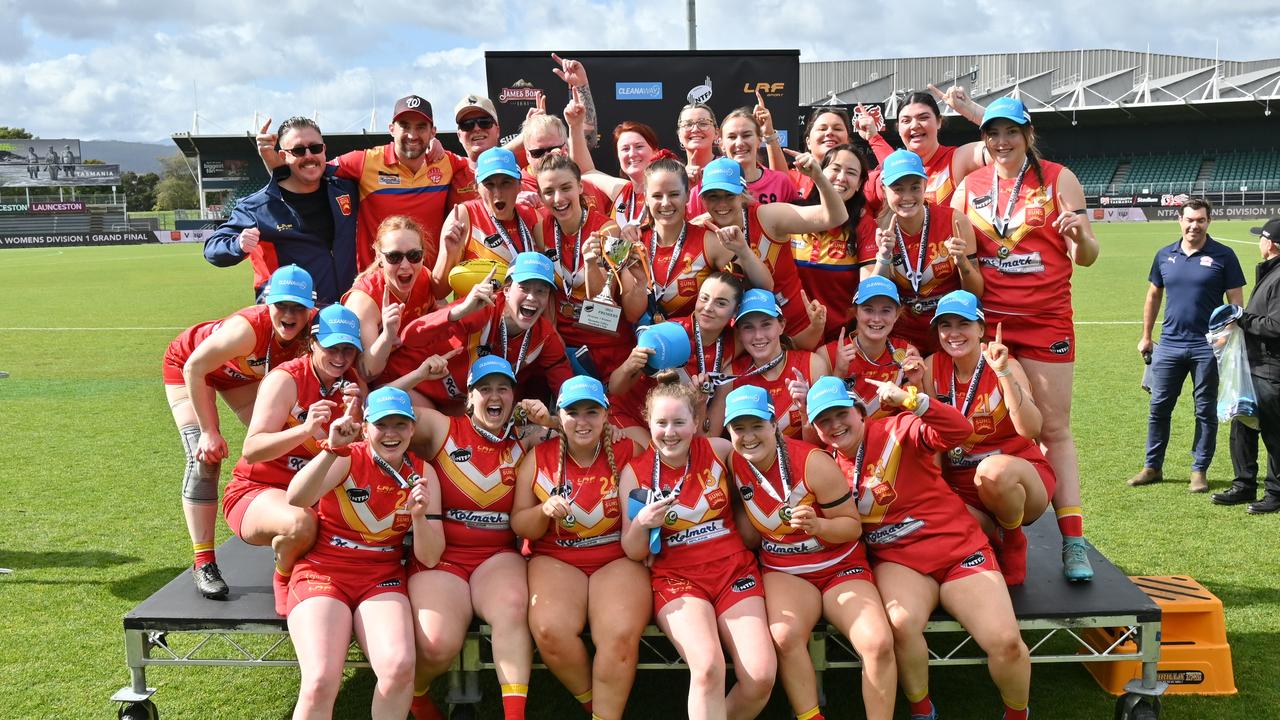Why Bombers believe zones, not points, is northern footy’s best hope
The player points system won’t give them many issues, but North Launceston believes a greater northern zone system remains football’s best way forward as it begins a tough restructure.

Sport
Don't miss out on the headlines from Sport. Followed categories will be added to My News.
North Launceston coach Adrian Smith believes a zone-based system is the best long term solution to give all clubs the best chance to compete, as the NTFA looks to navigate potential early teething issues with its Player Points System (PPS).
And he backed Scottsdale coach Rickie Dolliver’s claims that community league teams are looking to pick the eyes out of Premier League teams by offering big money to players.
In short, the PPS is designed to encourage junior development and the retention of players long term, with veterans and club juniors worth zero or one point. It also seeks to deter clubs from overspending by recruiting a number of star players worth more points under the system.
The big challenge in ensuring it’s as equal as possible are the geographical advantages and disadvantages for each club, while some don’t have junior clubs or strong systems where they can stack teams with low point players.
The Premier League has been allocated 38 points for this season and 40 for divisions one and two.
“The reason they’ve done that (given community leagues more points) is there’s no junior development for a lot of those non premier league clubs,” Smith said.
“It’s really hard to get a points-based system when you’re meant to grow from within but if you don’t have a junior club, you’re looking at getting two and three (point players) which is very hard to fit into a cap system.
“And then they have to stay at the club for a few years before they’re worth low points.”
The Bombers are expected by most to dominate the inaugural six-team Premier League after going through last year’s TSL season unbeaten.
They are also in the fortunate position of having a large number of juniors and veterans on their list, which will give them far less headaches than some rivals when selecting teams.
For instance, reigning Alastair Lynch medallist Brad Cox-Goodyer is worth zero points (Veteran Player) under the system as a long-term Bombers player.
Smith said there’s no quick fix, but reiterated his belief a zone system is the best long term option.
“The quicker we go to a greater northern competition with zones and no point allocations the better we’ll be long term,” he said.
“Growing your zone development with juniors and make a high level junior competition which flows into these teams, is the best way, but at the moment we’re a long way off that.
“There will be some leniency around the points policy I think and it’s a good area to explore. “The point of the points system is you have to build from within. For any club there isn’t a quick fix, it comes back to development and making sure you’ve got the retainment of your players long term.”
Smith said he can sympathise with the rebuilding clubs like Scottsdale who are keen to usher through their strong under-16 and 18 groups, but they will need time to be ready for full time senior football.
They also have to contend with players fielding tempting offers from lower divisions.
“I agree with him (Dolliver) in that space,” Smith said.
“Not that we’ve lost players to community league, but players we tried to recruit who should be coming back to us haven’t bothered, because we can’t compete with the salaries they’ve been offered in the lower leagues.
“The sign-on bonuses are just astronomical to the point where it’s not how you want to go about it.
“I just think the money is way too big. I know some of the money our players were offered to play at a lower level, you cringe at the number. Some clubs are forking out massive money.
“If you go for a quick fix it’s not sustainable long term and that’s when clubs fall into a hole. “You can go and throw lots of money out there, but it isn’t going to fix anything because you don’t have the depth.”


